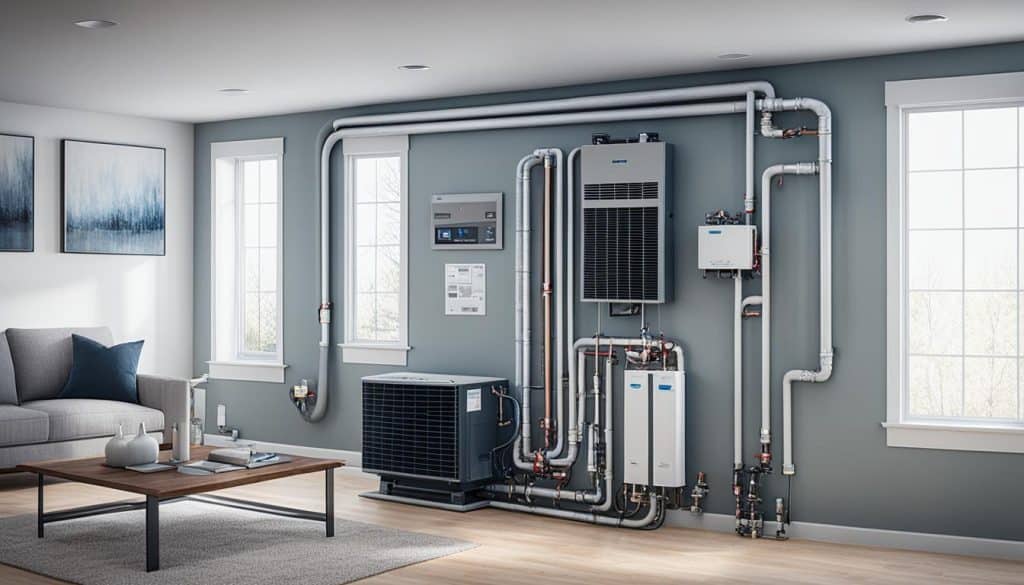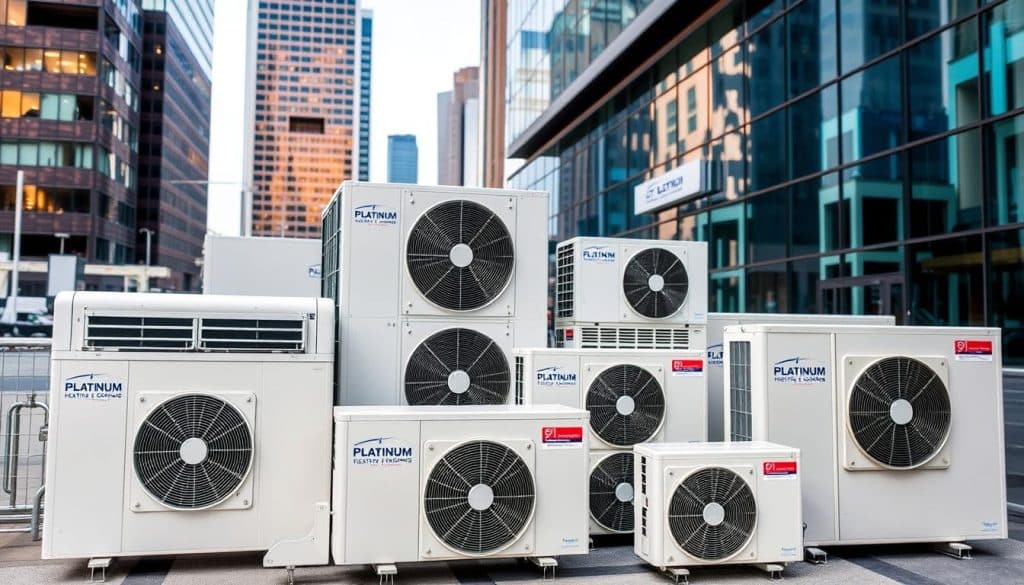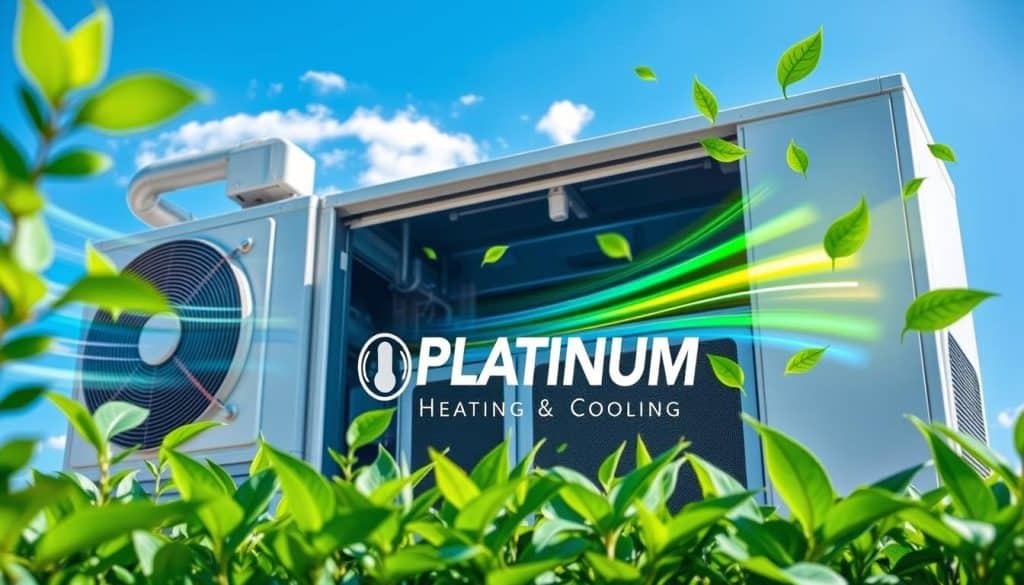Table of Contents
Thinking about How Does Apartment HVAC Differ From Home HVAC? It’s not just about size or how they’re installed. Apartment and home HVAC systems have unique features and challenges.
Key Takeaways
- Centralized and decentralized systems define the primary types of apartment HVAC unit vs home HVAC unit.
- Centralized systems include hot water baseboard and geothermal configurations.
- Decentralized systems offer versatile heating and cooling options.
- Heating generally involves propane or gas for homes, whereas apartments might use electric or other alternatives.
- Cooling processes typically employ condensers or heat pumps across both setups.
- Platinum Heating & Cooling provides services and installations for different HVAC needs.
Overview of HVAC Systems
Heating, ventilation, and air conditioning (HVAC) systems keep places comfortable and the air clean. They are key for both apartments and homes, ensuring the right temperature and air flow. Knowing the parts and how they work helps see the difference between apartment and home HVAC.
Definition and Function
HVAC systems manage indoor conditions. They heat in winter, cool in summer, and improve air quality. Both apartments and homes need these systems, but they are customized for each place. For instance, apartments and homes might use different methods to work best.
Types of HVAC Systems
There are many HVAC systems, each with its own strengths. The main types are:
- Split Systems: Have separate heating and cooling units, common in homes. They are efficient and easy to install.
- Hybrid Systems: Mix traditional and green energy, increasing efficiency. They are flexible and good for the environment, fitting many places.
- Duct-Free Systems: Known as mini-splits, great for older buildings or single units without ducts.
- Packaged Systems: Combine heating and cooling in one unit, ideal for small spaces like apartments to save room and make setup simpler.
Knowing these types helps understand the difference between apartment and home HVAC. Companies like Platinum Heating & Cooling serve both, offering repairs and installations for all HVAC needs.
Apartment HVAC Systems
Exploring apartment HVAC systems vs home HVAC reveals unique aspects. Apartment systems are tailored for multi-unit dwellings. They ensure climate control and energy efficiency across different apartments.
Centralized Systems
Centralized systems are a top pick for apartment buildings. They heat and cool the whole complex with one big unit. These systems use hot water, two-pipe, four-pipe, or geothermal tech for even temperatures.
Centralized HVAC needs regular checks and upkeep. This ensures the system works well and solves problems for everyone.
Decentralized Systems
Decentralized systems give each apartment its own control over temperature. They include baseboard heaters and self-contained units. These are cost-effective and efficient.
Unlike big units, these systems let people set their own comfort levels. This can also cut down on energy use. Experts like Platinum Heating & Cooling offer specialized care for these systems.
Knowing the differences between apartment and home HVAC systems helps property managers. It guides them in choosing the right systems and maintenance. This improves living conditions for tenants.
Home HVAC Systems
Home HVAC systems are made to fit the heating, ventilation, and air conditioning needs of each house. They differ from apartment systems, which are shared. Home HVAC systems can be customized for different parts of a house.
HVAC zoning is a key feature in homes. It uses dampers or separate systems to control air flow. This way, specific areas get the right amount of heat or cool air without wasting energy.
Some homeowners choose a system with two parts for different areas. This lets them control the temperature in each part of the house. Companies like Platinum Heating & Cooling offer services like mini-split installs and new construction HVAC. They make sure the systems are efficient and save money.
It’s important to know the differences between apartment and home HVAC systems. This helps make better choices for heating and cooling. By understanding a home’s design, you can improve comfort and save energy.
How does apartment HVAC differ from home HVAC?
It’s important to know the differences between apartment and house HVAC systems. They both aim to control the indoor climate. But, the way they work and their efficiency can vary a lot.
Structural Differences
Apartment HVAC systems are often central and shared among units. This can cause issues like smoke spreading through vents. Homes, on the other hand, usually have separate systems for each area.
This setup lets homeowners control the climate in each room. It helps keep rooms clean and private.
System Efficiency
Efficiency is a big difference between apartment and house HVAC systems. Apartment systems work one zone at a time, which can affect their efficiency. Homes with separate systems for different areas can heat or cool them at the same time.
This can make homes more comfortable but might cost more to maintain. Companies like Platinum Heating & Cooling can help make your HVAC system work better and meet your needs.



